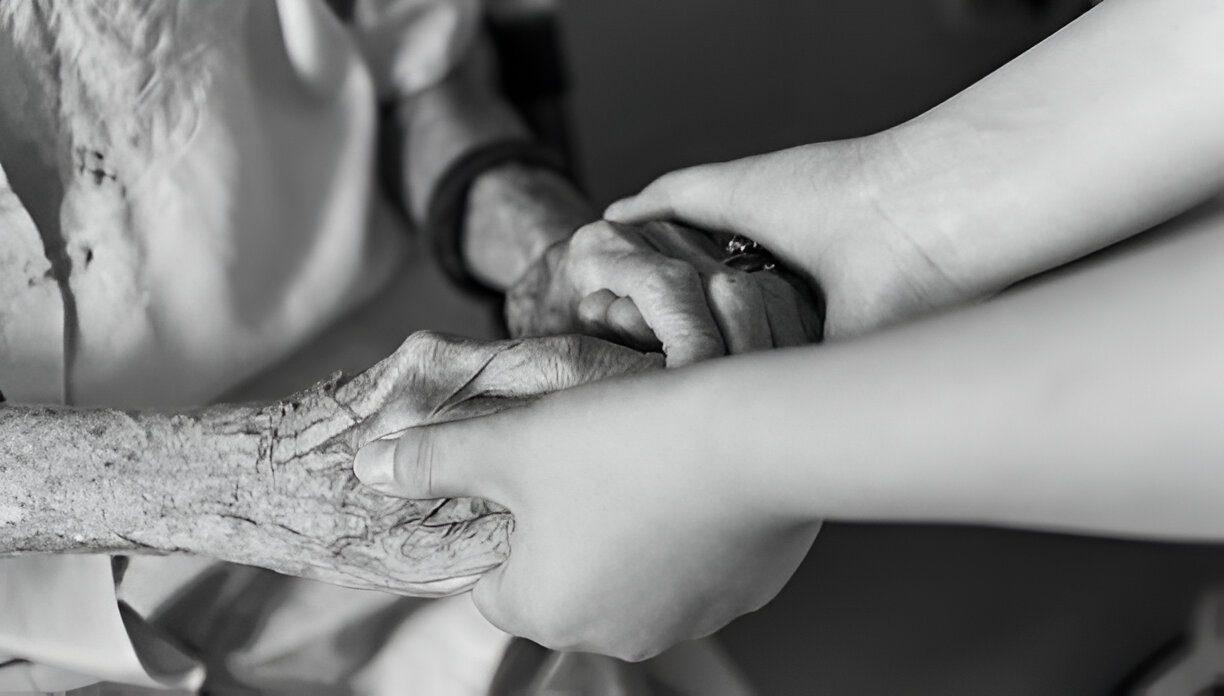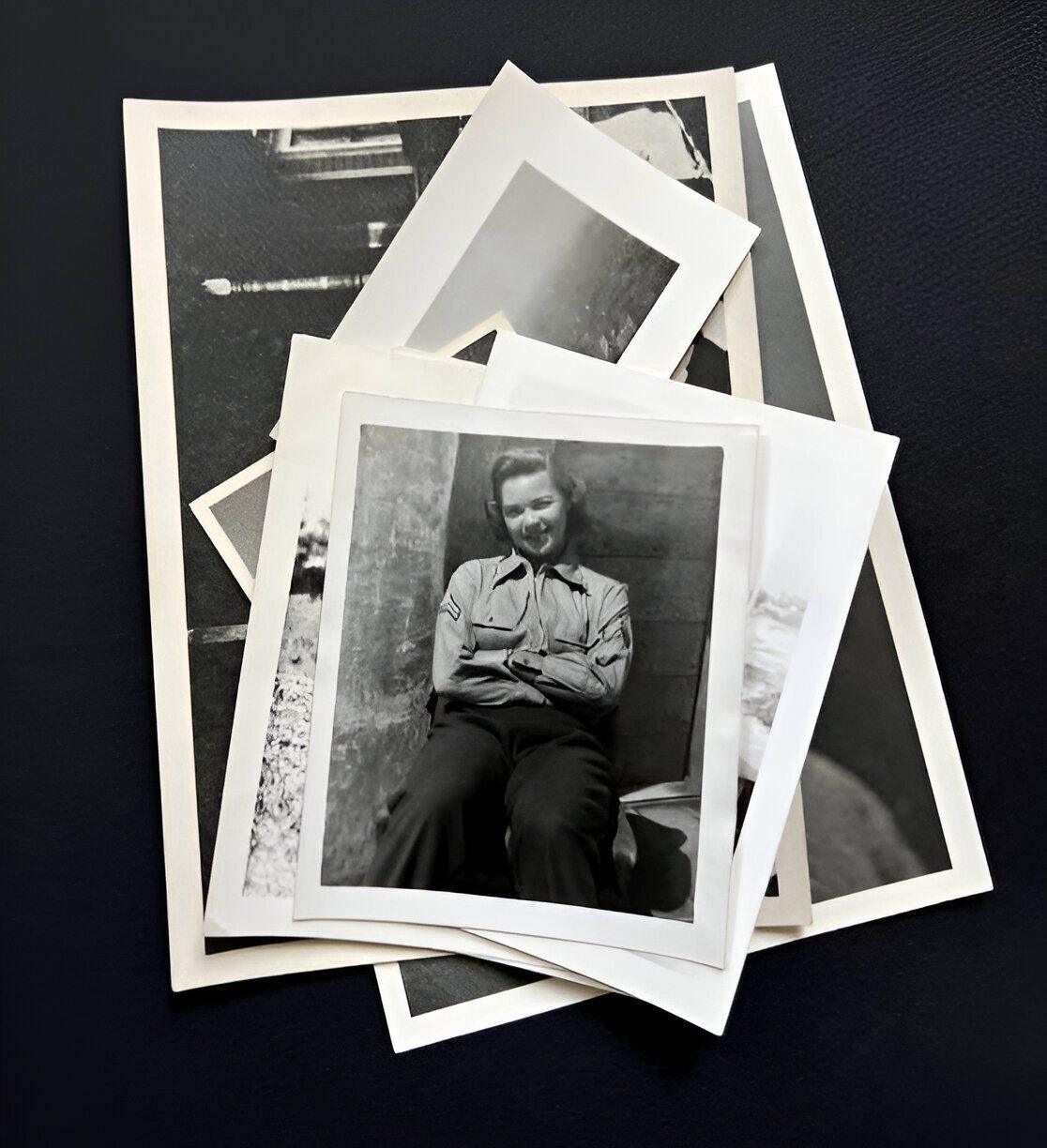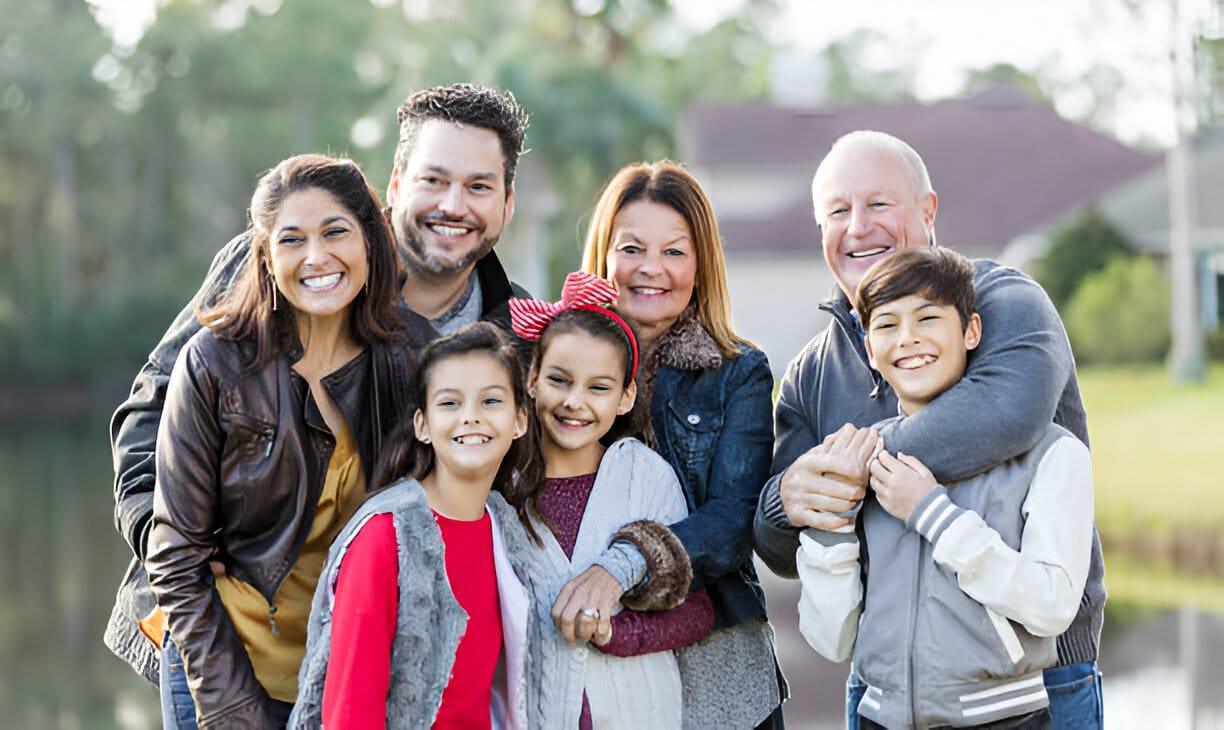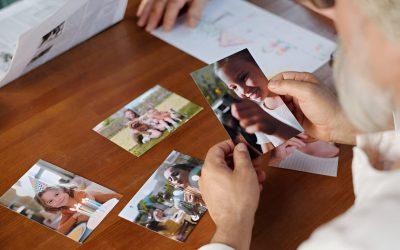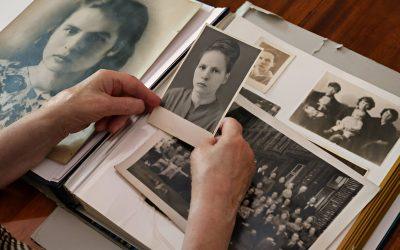The Quiet Goodbye
When Olivia’s grandmother passed away, she felt an overwhelming sadness—but also an unexpected loneliness. Her grandmother had been her storyteller, her connection to the family’s past, and the keeper of childhood traditions. Now, family gatherings felt emptier. Though Olivia knew her grandmother had lived a long, meaningful life, she wrestled with guilt over missed visits and regret for unsaid words, realizing that an era of her life had quietly ended.
For many adult grandchildren, losing a grandparent is a profound but sometimes overlooked form of grief. While society often highlights grief after losing a parent or spouse, the loss of a grandparent can still bring deep emotional shifts, existential reflections, and a longing for the past.
When Grandparents Become Part of Your Core Identity

The Unique Nature of Grieving a Grandparent
The loss of a grandparent isn’t just about losing a relative; it involves losing history, tradition, and a vital anchor to family identity. Some specific aspects that shape this grief include:
-
The Depth of the Relationship
- Not all grandparent-grandchild bonds are the same. For some, a grandparent is a second parent or best friend; for others, they are a beloved, more distant figure. The closeness influences the depth of grief.
-
The Generational Transition
- Grandparents often hold the keys to family history, traditions, and values. Their passing can symbolize the fading of an entire generation, prompting reflections on one’s own mortality and legacy.
-
Gratitude vs. Grief
- If a grandparent lived a long, fulfilling life, grief may mingle with gratitude. However, sudden or difficult losses can lead to unresolved shock or anger.
-
The Challenge of “Minimized Grief”
- Because grandparent loss can be seen as “expected,” some feel pressured to “get over it” quickly. But this loss can be deeply personal and life-altering.
-
Secondary Losses
- Beyond the individual, grief extends to what they represented:
🕯 Loss of family traditions or customs.
📖 End of certain childhood rituals, like bedtime stories or holiday routines.
🏡 Possible changes to a family home or gathering place.
👨👩👧 A shift in family roles and dynamics.
- Beyond the individual, grief extends to what they represented:
Emotional Challenges After Losing a Grandparent
Grief following a grandparent’s passing can stir a wide range of emotions—some surprising, some deeply resonant.
💙 Sadness & Nostalgia
Missing their presence, their voice, their laughter—and feeling the pang of nostalgia when recalling shared rituals.
💬 Guilt & Regret
Wishing for more visits, better goodbyes, or believing one could have done more to ease their final days.
🌿 A Sense of Rootlessness
Feeling disconnected from family history and generational continuity now that the “family historian” is gone.
🤍 Lack of Acknowledgment
Society might not offer the same level of support for the loss of a grandparent as it does for a parent, leading to feeling overlooked.
🕊 Family Changes
Loss may reshape family gatherings or traditions, causing a ripple effect in how relatives interact and celebrate.
Coping Strategies for Adult Grandchildren
Acknowledge and Validate Your Grief
Your grief is real. Even if others minimize the loss, losing a grandparent can create significant emotional upheaval. Give yourself permission to mourn.
Share Stories and Preserve Their Legacy
📖 Write down memories or compile a scrapbook.
🎤 Record voice notes of relatives sharing stories about them.
🍽️ Continue traditions—maybe cook their signature dish or keep holiday customs alive.
Engage in Rituals of Remembrance
🕯 Visit their resting place or a special spot they loved.
🌸 Light a candle or say a prayer in their honor on meaningful dates.
💙 Donate to a cause they cared about or keep a small memento that reflects their life.
“Every grandparent’s love weaves into our story, lingering in family recipes, holiday traditions, and the whispered lessons of a life well-lived.” — Alicia M.
Seek Support from Loved Ones
✔️ Talk to family—sharing grief can reinforce family bonds.
✔️ Connect with siblings or cousins who understand your grandparent’s role in your life.
✔️ Consider therapy if feelings become overwhelming or isolating.
Take Care of Your Emotional and Physical Health
Grief manifests physically—fatigue, appetite changes, lowered immunity—so:
✔️ Prioritize rest and gentle exercise.
✔️ Eat well to support your body.
✔️ Show yourself compassion if some days feel heavier than others.
Allow a Range of Emotions
It’s okay to feel sad one moment, then be fine the next. It’s also okay to laugh, recalling a beloved joke they used to tell. Grief isn’t linear.
Embrace Their Influence Moving Forward
Losing a grandparent doesn’t mean losing their guiding presence. Reflect on what they taught you and how you can embody their spirit in your own life.
Things To Try This Week!
- Share a Favorite Memory:
Call or message a sibling or cousin, recounting a special story involving your grandparent. A shared laugh can ease the ache of loss.
- Carry on a Tradition:
Cook that dish your grandparent loved or place a small keepsake on a table in your home to keep their spirit alive day to day.
- Create a Reflection Corner:
Choose a quiet spot in your home to place a photo, a small candle, or a piece of memorabilia—somewhere you can pause to honor them when you miss them most.
Conclusion
Carrying Their Love Forward
The passing of a grandparent can mark the end of an era, leaving a space once filled by their stories, warmth, and traditions. It’s a shift not just in family structure but in one’s sense of belonging and personal history. While grief over a grandparent may be overlooked by some, it remains deeply significant.
Grandparents shape us in profound ways—through love, wisdom, and the stability of generational ties. Though they may no longer physically stand beside you, their impact endures in every family recipe you cook, every value you uphold, and every memory that lights your smile. As you allow yourself to mourn, remember that healing also means celebrating who they were and how they continue to touch your life. 🕊
The bond with a grandparent transcends their physical presence, living on in memories, recipes, lessons, and the gentle echoes of love.
As you grieve and adapt to a life they once brightened, remember that this sadness also underscores the depth of your connection. For comforting ideas, supportive resources, and thoughtful ways to honor their legacy, explore our cherish collections. May each moment of remembrance bring warmth, guiding you toward a tender acceptance of their enduring place in your story.
Embracing Grandparent Memories: Finding Comfort in Their Enduring Love
Losing a grandparent can feel like a quiet shift in your family’s foundation, as if part of your own history has slipped away. Our All Things Cherish collection provides comforting reflections, gentle resources, and community support to help you navigate these tender emotions—ensuring that their wisdom and warmth accompany you in all the seasons still to come.
More Reflections, More Growth
Loss is complex, and the road to healing is different for everyone. These reflections offer insight, support, and guidance as you navigate this journey.
Guilt and Grief: Coping with the Coulda, Woulda, Shouldas After Losing a Grandparent
Losing a grandparent can stir feelings of guilt and regret. This guide explores how to cope with the “coulda, woulda, shouldas,” reframe negative thoughts, and honor the love and memories you shared with your grandparent.
Long-Distance Love: Coping with the Grief and Sadness of Long-Distance Grandparenting
Long-distance grandparenting comes with unique challenges, including grief and separation from your grandchildren. This guide offers practical strategies to help maintain strong bonds and emotional connections, even when physical distance creates a sense of loss.
Cumulative Grief: Coping with the Loss of Multiple Grandparents in a Short Time
Cumulative grief occurs when multiple losses pile up, overwhelming the grieving process. This guide offers strategies for navigating the complexities of losing multiple grandparents, honoring their memory, and caring for yourself during this challenging time.
Holding On, Together: Maintaining Family Connections After Loss
Loss reshapes family dynamics, but shared grief can strengthen bonds. This guide offers strategies for communication, rituals, and support to maintain family connections.
A Subtle Yet Profound Loss: Grieving an Extended Family Member
Grieving an extended family member’s death is a unique journey. This guide offers compassionate advice to honor their memory, navigate grief, and find healing.
Honoring a Child’s Memory
Honoring a child’s memory is a profound way to navigate grief. This guide explores creative tributes, rituals, and acts of kindness to celebrate their enduring legacy.
Sibling Bonds: Coping with Loss Together
Grieving a sibling is deeply personal. This guide offers compassionate strategies to navigate grief, honor their memory, and strengthen your bond through shared healing.
When a Sibling Passes: Healing the Void
Losing a sibling leaves a profound void, but healing comes through honoring their memory and embracing connection. This guide explores ways to navigate grief and find peace.
The Unspoken Heartache: Understanding the Quiet Grief of Miscarriage
Miscarriage is a silent grief that touches one in four pregnancies, yet it remains unspoken for many. Explore the layers of loss, the cultural silence, and ways to support healing through acknowledgment and empathy.
Explore Journeys of Healing and Solace:
Discover dedicated spaces that offer understanding, guidance, and connection through grief. From the loss of loved ones to life’s challenging transitions, each category provides a pathway to reflect, connect, and find peace in shared experiences.

